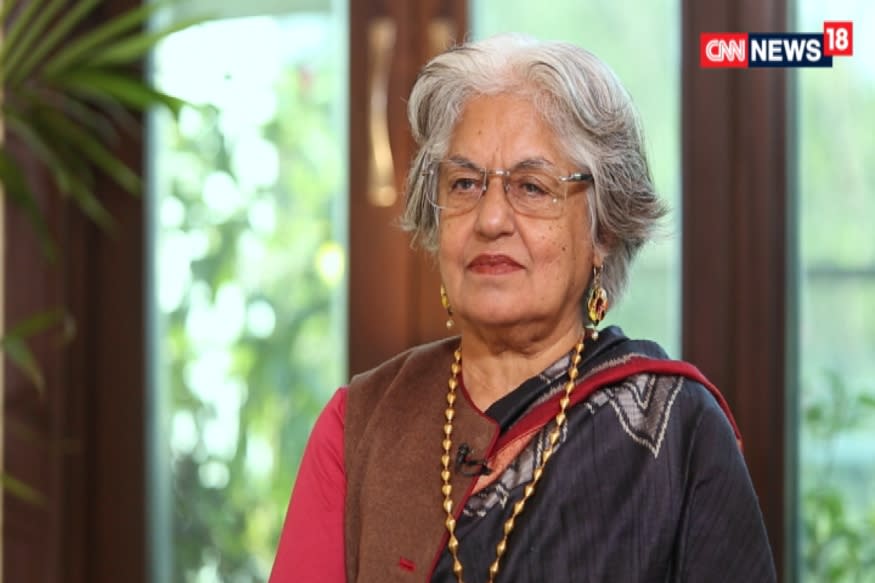The Timing Is Suspect, Your Honour

The sudden resurrection of a nine-year-old charge against senior advocate of the Supreme Court, Indira Jaising, can raise eyebrows. On Wednesday, the Supreme Court sought the Centre’s response to a PIL seeking an SIT probe into alleged receipt of foreign funds by Jaising when she was holding the “sensitive post of additional solicitor general” during the UPA government’s rule from 2009 to 2014.
While Jaising may have committed a grievous fault, the timing is highly suspect. The senior advocate had, just a couple of days before, raised her voice and concern at the procedural lapses in the ruling by an in-house Supreme Court committee exonerating charges of sexual misconduct against Chief Justice of India Ranjan Gogoi.
An enquiry while the Chief Justice of India is still discharging judicial and administrative functions is not a fair and impartial enquiry , all important witnesses are employees of the Supreme Court of India https://t.co/9mgEIxrblj
— indira jaising (@IJaising) April 24, 2019
What was the Lawyers Voice, the current petitioner against Jaising, doing for three years? Charges that the Lawyers Voice move is a ‘motivated one’ or an ‘instigated petition’ falls well within the shadows of doubt.
It was on May 31, 2016, and subsequently on November 27 the same year that the Home Ministry had issued its findings that “Jaising and Anand Grover (secretary and president of NGO Lawyers Collective), in violation of the Foreign Contribution Regulation Act, have indulged in influencing the democratic process of the country in the political arena by unauthorisedly lobbying with MPs and the media for passing certain legislations and to influence policy decisions.”
To be fair, Jaising and Grover may have committed grave errors of judgement; but the question remains as to why no action was initiated all these years. Why now, Your Honour?
Why the petitioners did not think of a PIL before was not questioned by a bench comprising Chief Justice Ranjan Gogoi and Justice Deepak Gupta, obviously due to the fact that the Government’s version is to be awaited in response to the notices issued by the apex court to the Centre. Jaising, Grover and Lawyers Collective have also been asked to respond in six weeks.
But crucially, the Supreme Court said pendency of the petition in the apex court was no bar for investigating agencies to act in accordance with the law. Which means Jaising, Grover and Lawyers Collective could still be probed within the six weeks.
Is this not tantamount to nudging the Central agencies to act? Maybe, maybe not, but the doubt still remains.
Lawyers Collective, an NGO, has a point when it said through a public release that the petition was intended to victimise Jaising for taking up the case of a dismissed woman employee of the SC who has levelled allegations of sexual harassment against the CJI.
The case was “obvious victimisation of her (Jaising) as she has taken up the issue of procedure adopted in relation to the allegation of sexual harassment against the CJI”, the release said.
Jaising was well within her rights to take up the issue of alleged procedural flaws in dealing with the sexual harassment complaint against the CJI. She was, after all, acting in her capacity as a “concerned citizen, a senior member of the bar and women’s rights advocate, without commenting on the merits of the allegations”.
Lawyers Collective’s statement on the notice issued today by two judge Bench of the Supreme Court comprising CJI Ranjan Gogoi and Justice Deepak Gupta. pic.twitter.com/16RCRmWohk
— indira jaising (@IJaising) May 8, 2019
To give an aura of fairness, the CJI should have ideally recused from the present case as Jaising was at the forefront of the move criticising on procedural lapses in a case which that involved CJI Ranjan Gogoi.
As the Lawyers Collective pointed out: “Considering that Jaising has been publicly vocal on the issue of due process of law in relation to the conduct of the in-house inquiry, the CJI ought to have recused himself from hearing the matter.”
Another matter of concern is how the Supreme Court registry bent the standard operating procedure for listing of petitions to get this particular PIL against Jaising listed within days of defects getting cured. The Lawyers Collective pointed out that “though the petitioner’s advocate did not orally seek any interim orders, the court passed an order saying that pendency of the petition will not come in the way of government agencies proceeding in the matter.”
The timing, the speed with which the case came up for hearing and an unsought interim order stating that a probe by agencies can proceed irrespective of the PIL – all these have cast a shadow on the perception of fairness of the Supreme Court. The court may be right, but it should also be seen as right.
The recent developments in the Supreme Court – the allegations against the CJI, the way a probe was conducted and the move against senior lawyers – point out to a shadow boxing between the Bench, Bar and NGOs. The Government is no silent spectator or a ring-side anxious viewer; it is also involved, only the degree of its involvement is in question.
Powered by Trivone

 Yahoo News
Yahoo News 